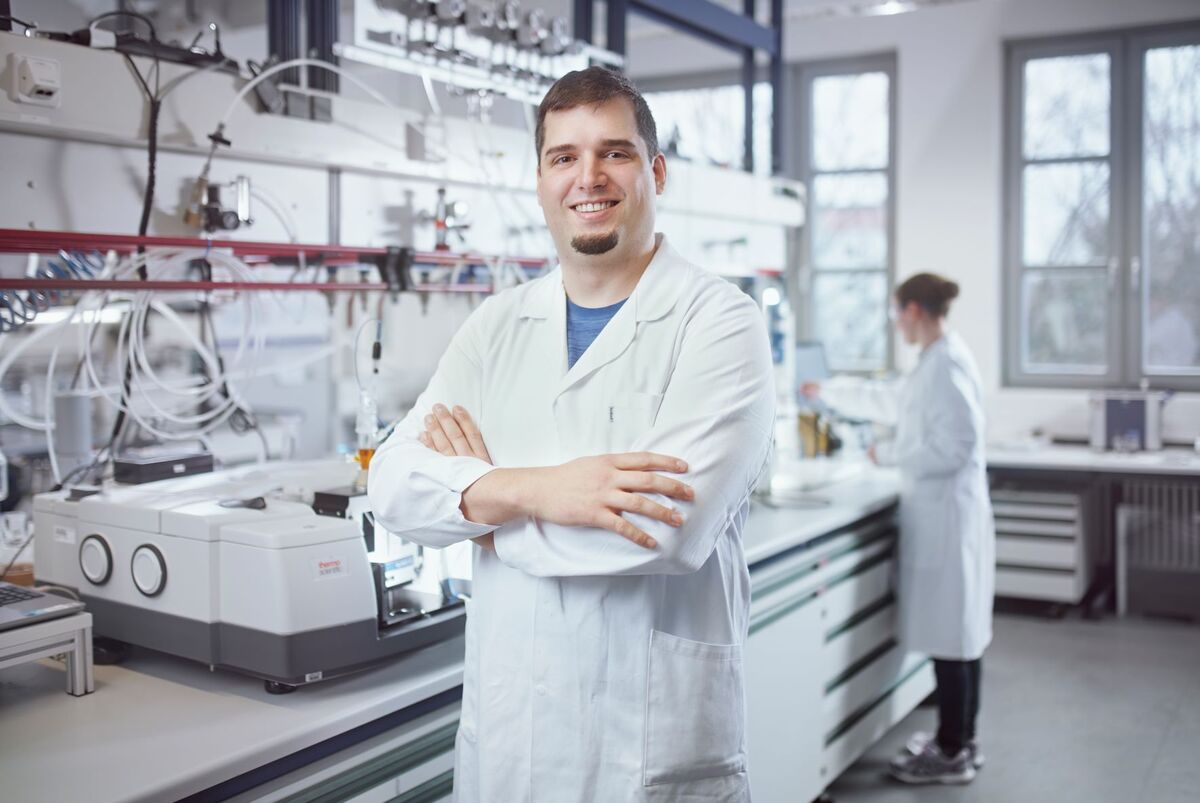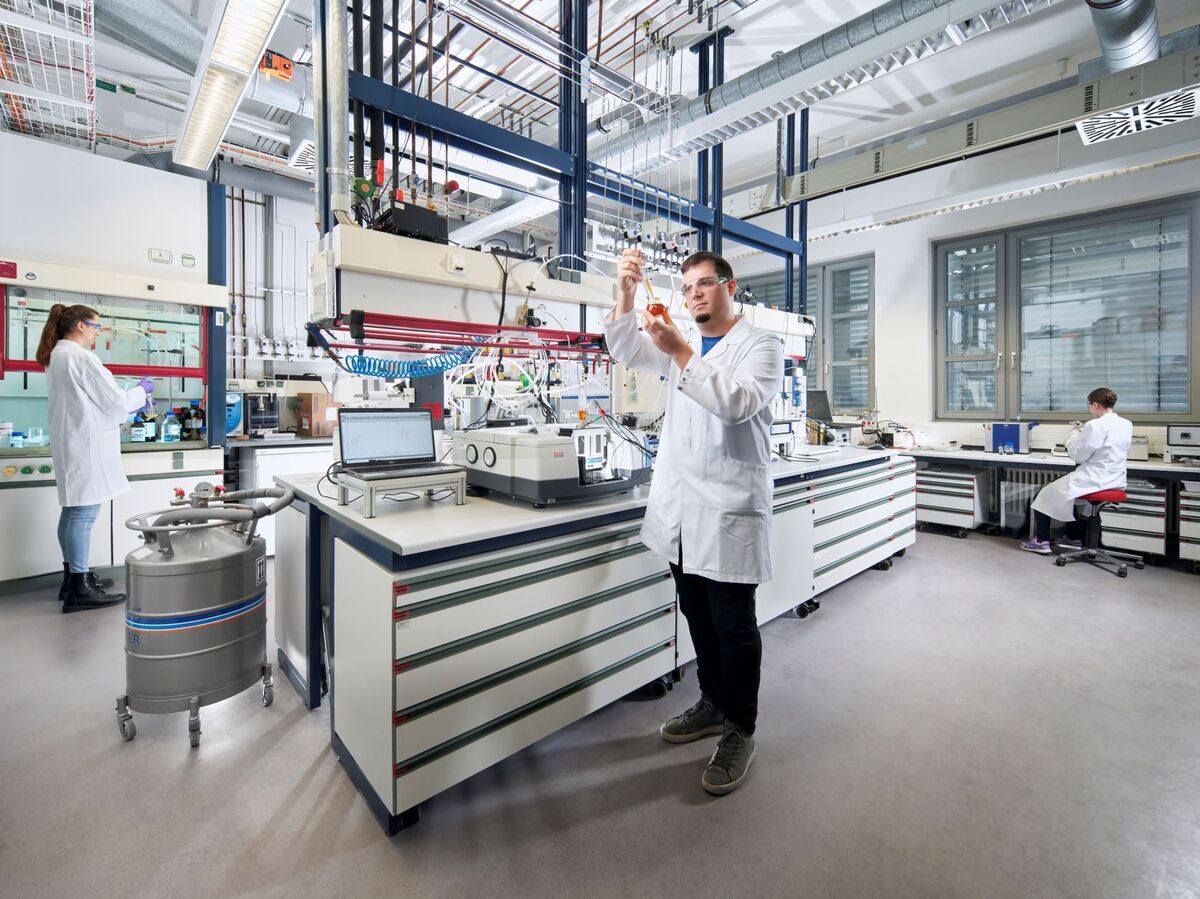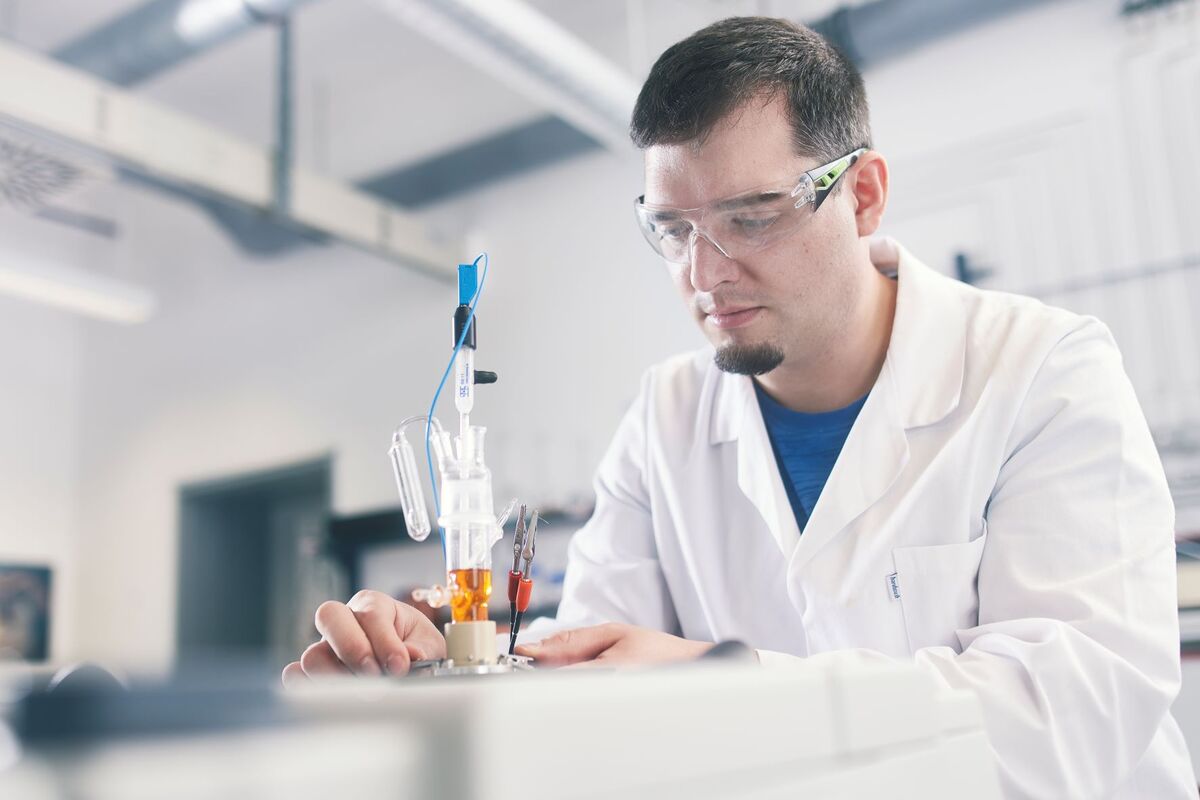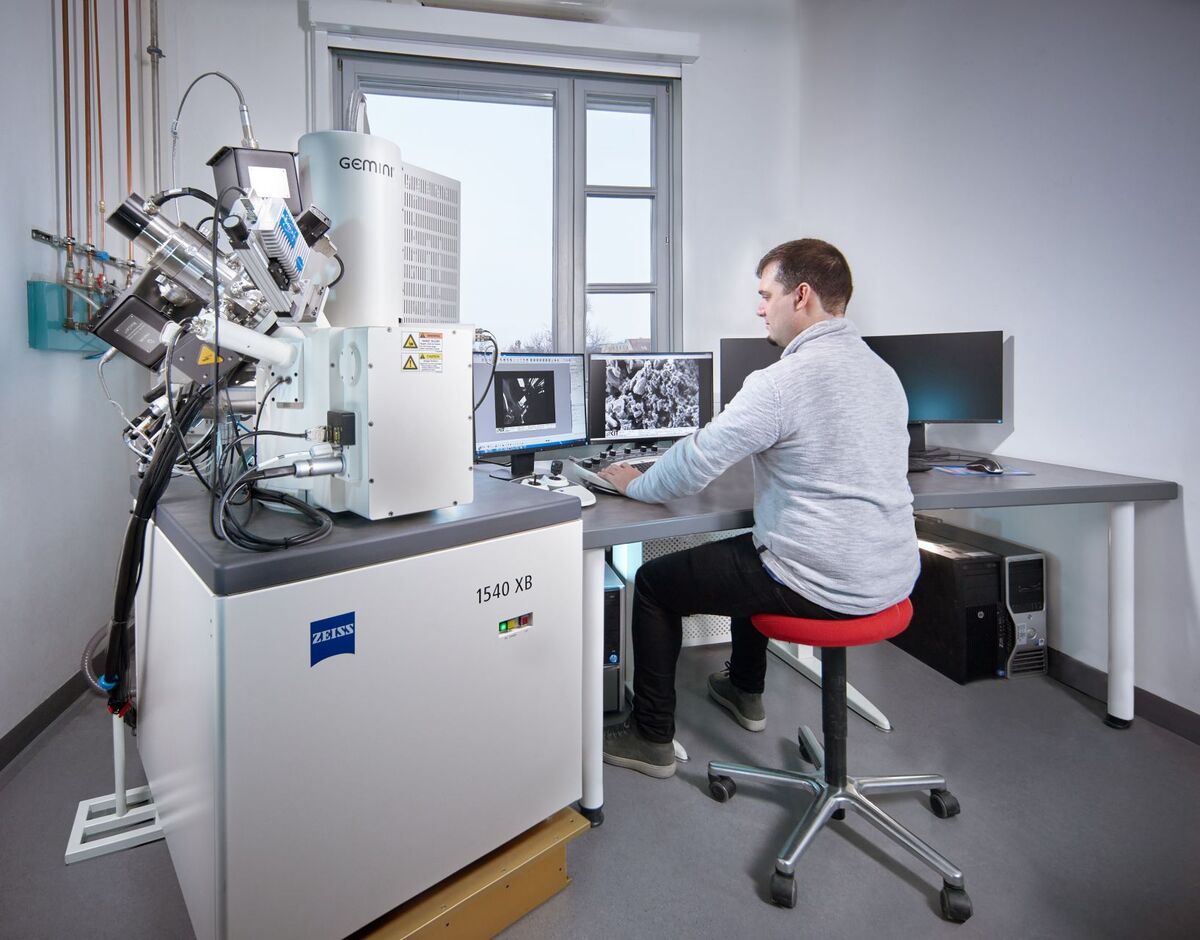Picture a Scientist - Portrait Philipp Röse
The Conversion Artist
"If you can't explain it to your grandmother, you haven't really understood it." This sentence is attributed to Albert Einstein - whether he really said it or not, there is a lot of truth in it. In any case, chemist Dr. Philipp Röse from the Karlsruhe Institute of Technology (KIT) is able to explain his topic "Carbon dioxide reduction reactions on copper-based electrocatalysts" in a short and understandable way: "We convert carbon dioxide into fuels and valuable chemicals with the help of electricity. For this electrochemical conversion, many scientists use water-based systems. We on the other hand work in an organic environment. In doing so, we hope to achieve a more targeted conversion." By "we," the 34-year-old chemist refers to the electrocatalysis/electrosynthesis group that he heads at KIT's Institute for Applied Materials - Electrochemical Technologies (IAM-ET). How can the carbon dioxide reduction reaction researched by the Karlsruhe scientists contribute to climate protection and energy transition?
CO2 Can be Used for Fuels and Chemicals
Carbon dioxide (CO2) is widely known as a greenhouse gas that is harmful to the climate. It is therefore essential to reduce CO2 emissions into the atmosphere in order to protect the climate. At the same time, however, CO2 can be viewed and tapped as a source of carbon to produce synthetic fuels or platform chemicals for further processing in industry. "My vision is that in about 20 years it will be possible to capture and recycle enough carbon dioxide to significantly relieve the climate," says Philipp Röse. The ecological opportunity of so-called carbon capture and utilization technologies lies primarily in replacing fossil raw materials in energy sources and materials. Synthetic fuels produced with such technologies can be used with the existing infrastructure; moreover, they can serve as temporary storage for surplus electricity from renewable sources such as sun and wind.
Electrocatalysis Moves Intractable Molecule to React
A great deal of basic research is still required to enable a most efficient and selective chemical use of CO2. The challenges arise primarily from the low energy level and the reaction inertia of the CO2 molecule. With the help of catalysis, the intractable molecule can be moved to react. Dr. Philipp Röse and his group use copper-based electrocatalysts for this purpose. Electrocatalysis lowers the activation energy of the electrochemical reaction at an electrode surface. "Our interest is not so much in catalyst synthesis as in electrochemical reactions at the solid-liquid interface on electrodes," Röse explains. "To explore them, we combine physicochemical modeling with experimental studies in the laboratory." One challenge is to increase the selectivity of the reaction, which should preferentially produce ethanol suitable for fuels as well as feedstock for various chemicals. "We are investigating what process conditions are required for the activity and selectivity of the reaction," the chemist explains. "Among other things, this involves materials and structures of the electrodes."
Interdisciplinary Exchange Opens Up Space for Own Ideas
Philipp Röse values interdisciplinary exchange. After completing a bachelor's and master's degree in chemistry at the University of Marburg, earning his doctorate, and then spending a research period at the University of Lund/Sweden, he worked as a laboratory manager at the Institute of Energy and Process Systems Engineering (InES) at Technische Universität Braunschweig. "There, my tasks were not limited to chemistry, but extended into the engineering sciences." He came to KIT in April 2020. He is currently working on his habilitation and supervising five doctoral students. Philipp Röse praises the open culture and the collaboration between the different disciplines. "This opens up the space to realize your own ideas."
Text: Dr. Sibylle Orgeldinger; Translation: Heidemarie Knierim




